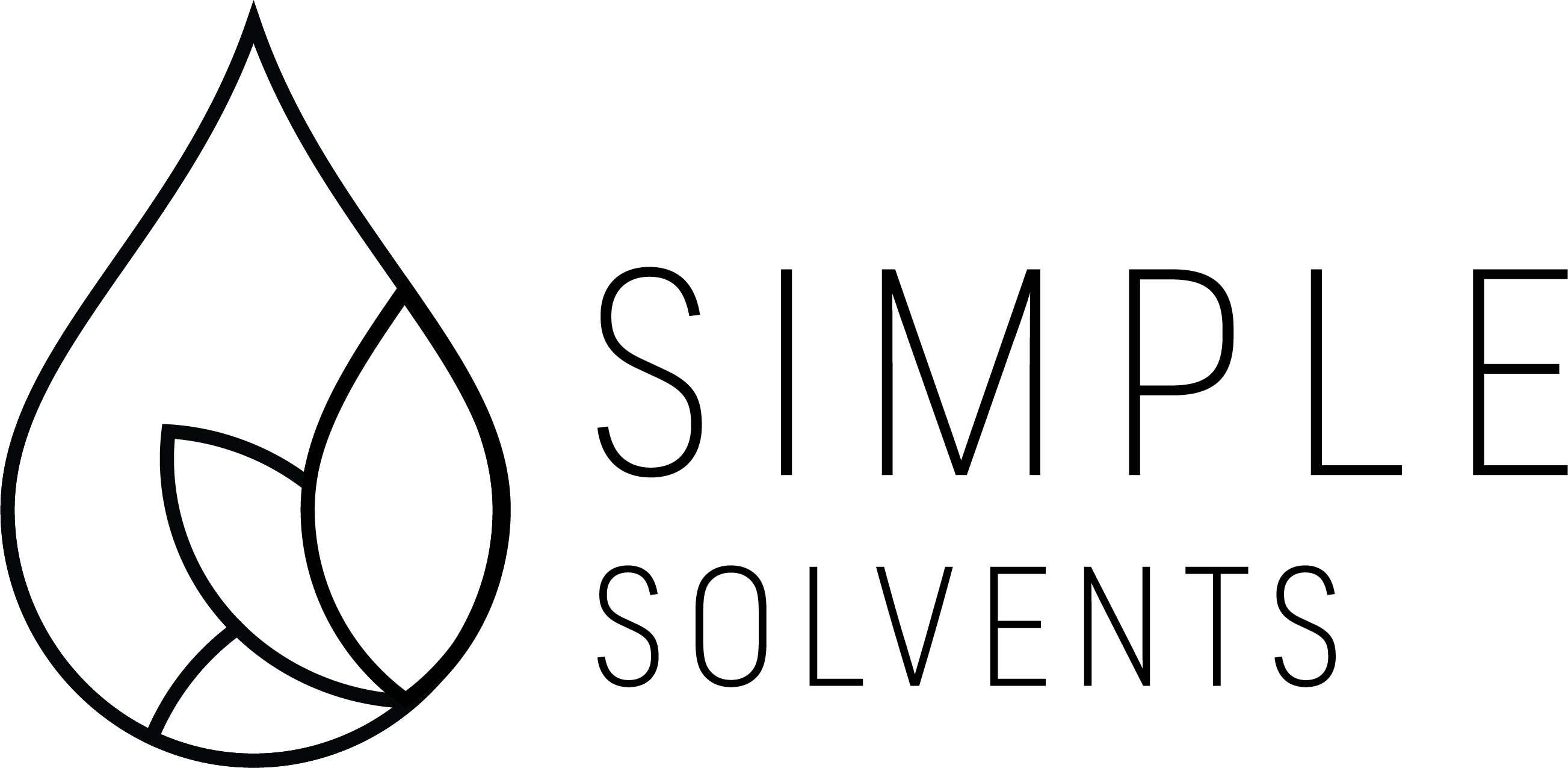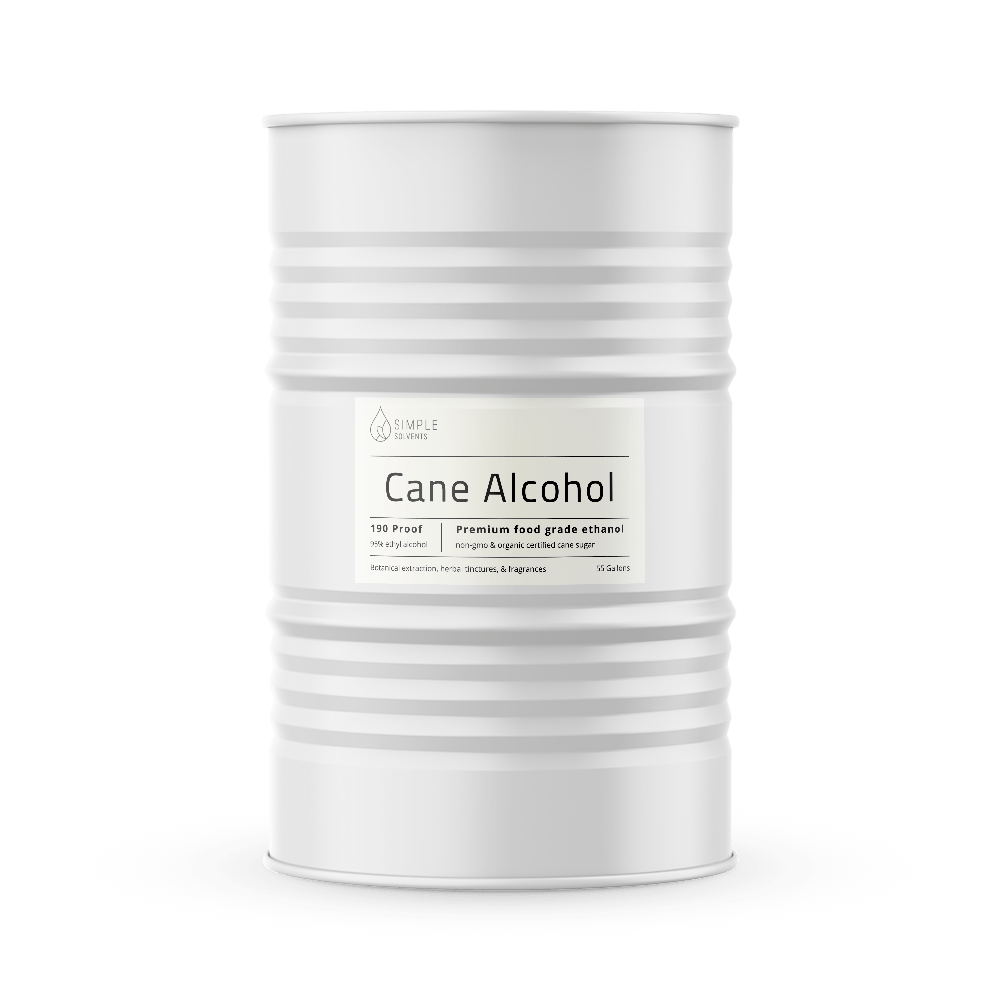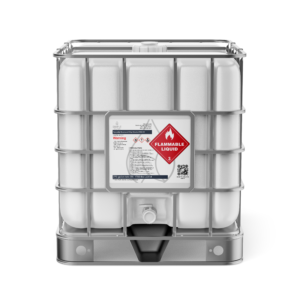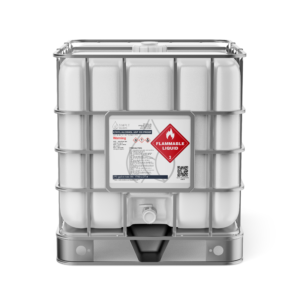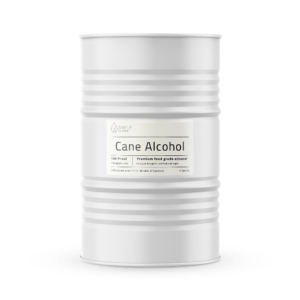Organic Alcohol
Food grade sugar cane alcohol made with the quality non-GMO, organic certified sugar cane.
Federal excise tax included.
$2,250.00 – $9,500.00Price range: $2,250.00 through $9,500.00
Bulk pricing & price matching available
Lab Tested
Secure Payments
Quality Guarantee
Fast Delivery
Organic Alcohol
Simple Solvents Organic Alcohol is a high-purity, undenatured ethanol made from 100% organic cane sugar. With its 190-proof strength, this alcohol meets the stringent requirements of the USP (United States Pharmacopeia) and FCC (Food Chemicals Codex) monographs and is kosher certified, making it a versatile choice for various industries.
Uses and Applications:
Fragrance: Its neutral and slightly sweet profile makes it a preferred solvent for blending and diluting aromatic compounds in the fragrance industry without altering the desired scent profile.
Botanical Extraction: Organic Alcohol is highly effective in extracting essential oils, flavors, and active compounds from botanicals. Its neutral odor helps preserve the true essence of the extracts.
Culinary: Ideal for food-grade applications, this 190-proof organic alcohol is commonly used in preparing flavor extracts and culinary products, ensuring both safety and exceptional purity.
Skincare & Cosmetics: In cosmetic formulations, Organic Alcohol serves as a solvent and carrier, contributing to high-quality skincare products thanks to its clean, neutral properties.
Laboratory: In scientific environments, this high-purity alcohol is used in experiments, extractions, and other laboratory processes that require reliability and consistency.
Pharmaceutical: Organic Alcohol is an excellent choice for the pharmaceutical industry, where it is used to produce tinctures, medicinal extracts, and other pharmaceutical products while meeting the highest standards of quality and efficacy.
Product Details
- CAS Number: 67-63-0
- Common Names: Organic Cane Alcohol, Organic Ethanol, Neutral Cane Spirits, Organic Neutral Spirits, Organic Cane Alcohol 190 Proof
- Scientific Names: Ethanol, Ethyl Alcohol
Disclaimer for Purchasing Food Grade Alcohol
Important Notice:
Before purchasing food grade alcohol from Simple Solvents, please be aware of the following:
State by State Shipping Restrictions
We are unable to ship food grade alcohol to every state due to various local regulations and restrictions. It is the buyer’s responsibility to ensure that they are in compliance with their state’s specific laws and regulations regarding the purchase and use of food grade alcohol.
We have published several blogs detailing state-by-state shipping and purchasing restrictions. We encourage all buyers to review these resources to understand the specific regulations that may apply to their location.
End-User Sales Only
We sell food grade alcohol exclusively to end users. Buyers must understand and adhere to local regulations governing the use and handling of food grade alcohol in their jurisdiction.
To purchase food grade alcohol for resale, please contact us.
Federal Excise Tax and Permits
Our food grade alcohol sales include federal excise tax and does not require federal permits to purchase.
Buyers are advised to possess an industrial alcohol user or seller’s permit when purchasing any food grade or specially denatured alcohol. Compliance with all relevant permits and regulations is required.
We can accommodate transfer in bond sales for buyers who have the appropriate TTB permits upon request. Please contact us for any sales regarding zero tax sales, transfers in bond, and federal excise tax reimbursements.
Age Verification 21+
All buyers must be 21 years of age or older. Deliveries will only be made to recipients who can provide a verified signature to confirm age at the time of delivery.
By proceeding with a purchase, you acknowledge that you understand and agree to comply with these terms and conditions. If you have any questions or need assistance regarding compliance, please contact us for further information.
When dealing with class 3 hazardous materials like certain solvents, it's crucial to prioritize safety at every step, from purchasing to shipping and receiving. At Simple Solvents, we take care of all aspects of delivery, ensuring that our customers receive their products safely and in compliance with regulations. Here are some essential safety precautions and information needed for handling these materials responsibly:
Safety Data Sheets (SDS): Customers can access Safety Data Sheets (SDS) for all our products, which provide essential information about the chemicals, including hazards, handling procedures, and emergency measures.
Understanding Hazards: While we handle the hazardous materials, it's important for customers to understand the specific hazards of the products they are purchasing, such as flammability or reactivity, and how to mitigate them in case of emergencies. Always read the safety data sheet before buying, using, storing and disposing chemicals.
Transportation Compliance: Our operations adhere to the Department of Transportation (DOT) regulations for shipping hazmats. Be sure to communicate with your local authorities regarding permits and regulations for buying, storing, using, and disposing of chemicals.
Proper Packaging: We use approved containers, labeling, and packaging materials to prevent leaks, spills, or accidents during transit, ensuring that hazardous materials are delivered safely.
Storage Considerations: Always store hazardous materials in designated areas with proper ventilation, temperature controls, and secondary containment measures to prevent accidents and minimize risks during transportation / storage.
Disposal Procedures: Be sure to understand proper disposal procedures and regulations that are unique to your location.
Emergency Response Plan: Always be equipped with a comprehensive emergency response plan, including procedures for spills, leaks, fires, and injuries related to hazardous materials, to ensure swift and effective response in case of emergencies.
Continuous Monitoring: Regularly monitor and inspect your storage areas, equipment, and handling practices to identify and address potential safety hazards promptly.
- solvent supply made easy
Material Safety Best Practices
When purchasing, using, shipping, storing, or disposing of Simple Solvents’ products, including flammable liquids and solvents, please be aware of the following important considerations and best practices:
Some Simple Solvents products are class 3 hazardous materials and are highly flammable. They may pose significant risks if not handled correctly. Always use these materials in well-ventilated areas away from heat sources, sparks, or open flames. Wear appropriate personal protective equipment (PPE), including gloves and safety goggles, to minimize exposure.
Proper Handling
Exercise caution when handling to prevent spills, leaks, or accidents. Use spill containment measures and follow the safety data sheet for safe handling. Do not tip packaging during transit or storage – keep the product vertical at all times.
Shipping and Storage
Ensure compliance with Department of Transportation (DOT) regulations for the shipping. All shipments must be made to a commercial address with proper labeling and documentation. Store these materials in secure, cool, and dry conditions away from incompatible substances. If the product is hazardous as indicated on the SDS, consult with your local fire marshal regarding storage allowances and local restrictions to ensure compliance with regional safety regulations.
Disposal
Follow local, state, and federal regulations for the disposal of chemical materials. Properly dispose of unused or expired products through certified disposal facilities or programs. Do not dispose in regular trash or down drains.
Emergency Procedures
In case of an emergency, such as a spill, leak, or exposure, immediately follow the appropriate emergency response protocols. Evacuate the area if necessary and contact emergency services for assistance. Use spill containment kits to manage and contain leaks, and refer to the Safety Data Sheet (SDS) for specific first aid measures and response instructions.
Regulatory Compliance
Familiarize yourself with relevant regulations and safety data sheets (SDS) for the materials you are handling. Ensure adherence to all legal and safety requirements to protect yourself and others. Every state and locality may have additional rules & regulations.
By following these guidelines, you can help ensure the safe and responsible use of Simple Solvents products. Always prioritize safety, emergency preparedness, and regulatory compliance in all aspects of handling and disposal.
Recommended Products
Related products
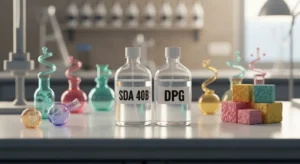
SDA 40B & DPG: Essential Ingredients in Fragrance Formulation
Behind every beautifully crafted perfume, cologne, or room spray lies a complex blend of science and artistry. While fragrance oils

Perfumer’s Alcohol: Uses in Perfumes, Colognes & Room Sprays
Perfume and fragrance creation is both an art and a science. Behind every bottle of perfume, cologne, or room spray
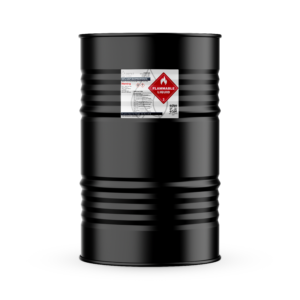
Isopropyl Alcohol Uses
Isopropyl Alcohol Uses by Different Industries Isopropyl Alcohol (IPA) is a versatile chemical with various uses across various industries. It

All You Need to Know About Ethanol and Its Various Uses
All You Need to Know About Ethanol and Its Various Uses Ethanol and Its Various Uses in fuels are essential

The Power of Ethanol: Fun Ethanol Facts on Safety and Industry
The Power of Ethanol: Ethanol Facts on Safety and Industry We are going to go over ethanol facts, uses and

Shipping Dangerous Goods: Regulations and Precautions
Shipping Dangerous Goods: Regulations and Precautions Shipping dangerous goods can be a tricky and sensitive process. It is crucial to
